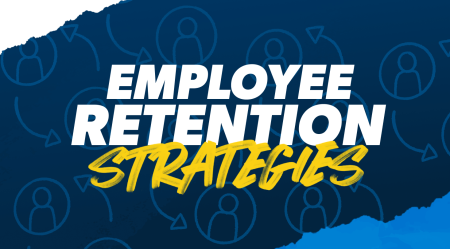No one becomes great on their own. Each one of us needs someone we can look up to and lean on for support. Luke Skywalker had Obi-Wan Kenobi. Harry Potter had Dumbledore. Katniss Everdeen had Haymitch. And these mentors aren’t confined to the world of fiction! The greatest leaders—from business to education to social justice and spiritual movements—have mentors. Steve Jobs mentored Mark Zuckerberg, and Dr. Martin Luther King Jr. was mentored by Dr. Benjamin Mays, the president of Morehouse College.
You’re never too successful to need a mentor. In fact, the moment you stop learning from others is the exact same moment you stop growing.
You might be thinking, Okay, Ken, I’m all in! But how in the world do I actually find a mentor? I’m glad you asked. Here are four steps on how to find a mentor.
1. Make sure you’re ready to be mentored.
Before you ask someone to commit to mentoring you, you need to make sure you’re ready to be mentored.
Focus on growth.
The most important sign that you’re ready for a mentor is if you’re teachable. You can learn from great women and men long before you’re soaking up their wisdom in person over lunch! Listening to podcasts, reading constantly and learning from your friends and peers are all indicators that you’re ready for a committed mentor. If you’re not hungry for growth, then a mentor relationship is a complete waste of time.
Determine your goals.
What do you want to get out of a mentor relationship? Are you looking for someone who can help you become a better spouse or parent? Do you need help growing in your career so you can land a promotion? Identify the specific areas where you want to grow so you know how to choose the right person.
Make a clear plan.
Be realistic with yourself about what this will look like practically. How often would you like to meet with someone? Do you have the margin in your schedule to commit to this relationship? Another idea to consider is the time frame for this mentorship. You could plan to meet with someone for a few months or communicate your desire for it to be more open-ended.
2. Choose the right person to mentor you.
Alright, it’s time to start the search! Let’s talk about a few practical ways to find a solid mentor.
Paint a picture of where you’d like to be in 20 years.
Allow yourself to daydream a little bit. What do you want your life to look like in 20 years? How will your job look different? What about your family? Find someone who’s already living the life you want to live.
And here’s a fun fact: You can have more than one mentor! They can be in various decades of life or in various arenas of life. You can meet with one person to work on professional goals and another to work on personal goals—like marriage, parenting or fitness.
Identify the important qualities of a mentor.
As you start your search, look for someone who has disciplined daily habits and is committed to excellence. There are three specific qualities you should look for in a mentor:
- Mentors are accomplished. Look for someone who’s climbed a mountain that you want to climb—someone who’s willing to share tactical advice on how to navigate your own path.
- Mentors are understanding. A good mentor will be empathetic and kind because they’ve been down the same road you’re on. They know what it’s like to fail, get back up, and keep going.
- Mentors are caring. A true mentor is both kind and honest—someone who treats you with compassion but is willing to share the hard truths you need to hear.
Make a list of people you know.
Okay, folks, get out a pen and some paper! Make a list of the people you know who could possibly fill the role of a mentor. Write down any and every name that comes to mind. Scroll through your phone contacts, your Facebook friends and your LinkedIn connections.
You deserve to win at work. Our new book and assessment will show you how.
Network the right way with people you trust to suggest other names. Your future mentor might not be in your immediate circle, but they could be just one introduction away! And by the way, don’t limit yourself geographically. Your mentor doesn’t have to live close to you—you can have a mentor in a different state!
3. Put yourself out there and just ask.
For most of us, asking someone to be your mentor is an opportunity to conquer your fear and take a risk. You can’t predict how they’ll respond. But honestly, what’s the worst that could happen? Keep the following tips in mind as you get ready to ask someone to be your mentor.
If possible, get to know each other first.
There’s nothing quite as awkward as committing to a relationship and then changing your mind. You want to make sure you like and respect your mentor. Just because they’re someone you’ve admired from a distance for a long time doesn’t mean it will be a good personality fit. Of course, if you already have a relationship with the person and know you get along, you can just cut to the chase and ask!
But if you don’t know them from Adam, figure out a way to connect with the person you have in mind through an informal, low-pressure social event. Attend a conference where you know they’ll be speaking. Or find out how you can get involved in their community or volunteer circles.
Make the ask!
There’s no proven way to ask someone to mentor you. You just need to be honest, kind, respectful and helpful. You might feel nervous that they’ll say no. And that’s a possibility! You might need to have a few conversations before you find the right person. That’s all right! If it doesn’t work with the first person you asked, return to your list and keep going.
Be direct in your communication.
Once you’ve gotten your yes (congrats!), lay out the plan you created earlier. Be clear about the hopes and goals you have for this relationship. Here’s what you should share:
- The areas of your life where you want to grow
- Your goals for how often and how long you’d like to meet
- The specific questions or problems you’re facing
- The reasons why you admire this person and think they’d be a good fit
Don’t forget to show gratitude to the person who agrees to take you under their wing. It’s a worthwhile labor of love, and they’re honoring you by giving up one of their most valuable resources: their time.
4. Be a good mentee.
A mentor/mentee relationship is a two-way street. Your mentor isn’t going to step into your life with a magic wand and make your wishes come true. The more effort you put into your time together, the more you’ll grow.
Respect their time.
Show up on time and wrap up when you need to. One of my favorite examples of a respectful mentor/mentee relationship comes from Oprah Winfrey’s life. As a young news anchor, Oprah approached Maya Angelou and asked for just five minutes of the great poet’s time. When they met, Oprah honored her original request and wrapped up the conversation after five minutes. Oprah’s integrity made a huge impression on Angelou and sparked a lifelong friendship between the two women.
Listen and learn.
Your mentor has conquered mountains. Accept what they have to teach you by approaching them with a posture of humility and openness. Here are a few ways to learn well:
- Come prepared. Before each meeting, set a loose agenda or write down questions to make sure you cover the important topics you want to discuss.
- Ask good questions—then shut your mouth. Be intentional about listening to what your mentor has to say.
- Be hungry for growth. Even the most successful, accomplished people know they have something to learn. Bill Gates, for example, credits his passion for philanthropy in public health to his good friend Dr. William Foege, who shared his wealth of knowledge with Gates and recommended books.
- Ask for feedback. Make it clear that you’re open to your mentor’s thoughts and advice on the topics you discuss. Develop humility and ask for specific ways you can improve.
Look for someone who you can mentor.
When the time’s right, you should aspire to become a mentor and pass the torch to someone else who’s looking for guidance. As you teach your craft, you’ll sharpen your own skills and enjoy the hard but rewarding work of seeing someone you care about make progress.
You don’t have to have it all figured out. You just have to be a few steps ahead of the person you’re mentoring and have a passion to see them succeed!
Make Connections That Count
In every area of life, meeting the right people and developing genuine relationships is the key to changing the trajectory of your future. If you want to make your dreams a reality, you need to learn from people who are already living the dream.
The best piece of advice I can give you for building meaningful relationships is to use The Proximity Principle: the proven strategy to lead to a career—and a life—that you love.
I wish you the best as you search for a mentor. Press on!
Read the full article here












